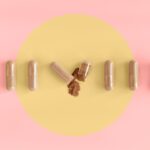The best treatment for anemia with UC depends on the cause. In general, managing UC-related anemia involves both medical management and lifestyle adjustments.
Medical Treatments
The best way to treat UC-related anemia is to manage ulcerative colitis. This can help control the bleeding in the large intestine to limit blood loss (and the resulting iron deficiency anemia) and reduce inflammation to treat ACD.
Medicines to treat UC include:
- Aminosalicylates
- Corticosteroids
- Immunosuppressants
- Biologics
- Small-molecule medicines
Bhargava says the key to treating his iron deficiency was getting his ulcerative colitis under control so his body could absorb iron properly.
Although the hospital treatment helped his ulcerative colitis symptoms, Bhargava continued to be deficient in iron. “It was challenging just to get up in the morning and go to work,” he says. “And because the tiredness was getting worse, the frequency of bowel movements would get worse, and I’d lose more blood with every bowel movement.”
After speaking with an hematologist at the hospital in New York City where he worked, Bhargava tried intravenous iron infusions and vitamin B12 injections, treatments commonly used to counteract chemotherapy side effects.
“It almost instantaneously helped my energy levels,” he says. “And it also helped my colitis symptoms.”
Lifestyle Factors
- Identifying and avoiding trigger foods, like dairy or high-fiber foods
- Drinking fluids often
- Limiting or avoiding drinks containing alcohol and caffeine
Physical exercise and managing stress can also prevent flares and preventing flares may help decrease likelihood of developing iron deficiency.
Bhargava became a vegetarian and started practicing pranayama, a form of yoga breathing. He also takes ayurvedic herbal supplements and remains free of both UC and iron deficiency symptoms.
After your body’s iron stores are back up, eating iron-rich foods such as the following can help maintain them:
- Iron-fortified cereals
- Oysters
- Beans
- Beef
- Beef liver
- Spinach
- Tofu
- Sardines
- Canned or stewed tomatoes
Read the full article here




